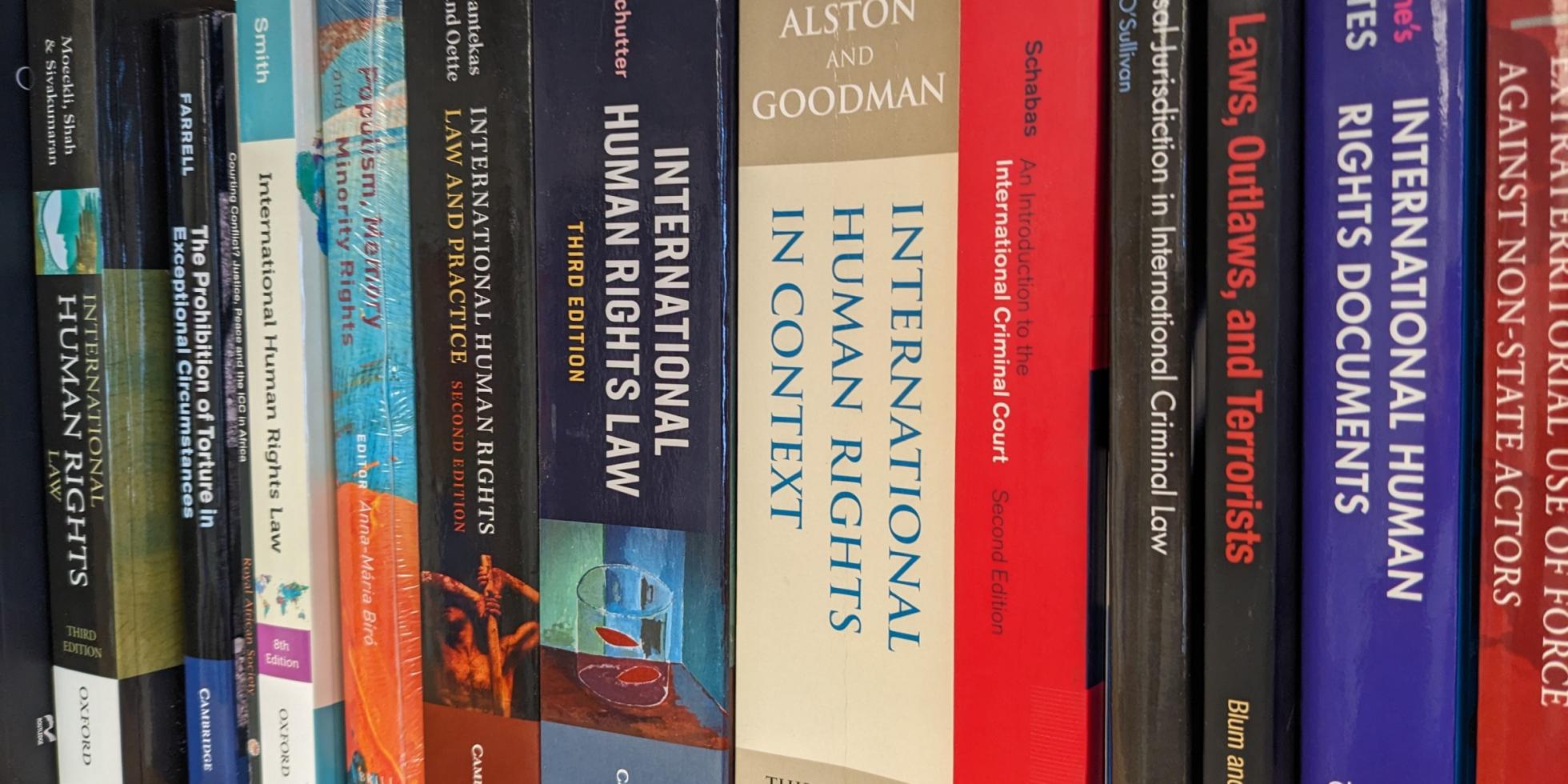The virtual human rights library brings together resources from multiple libraries and information services, both internal and external, to create an online hub dedicated to the study of human rights. This curation is unique in its interdisciplinary concerns and focuses on writings and research from social sciences, humanities, and law.
The virtual library is continually updated with the latest academic research in issue areas, as well as with relevant films, recorded conversations, and other forms of media.
Searchable Database
Click into the dropdowns to select the disciplines, keywords, and media type for your search, and then hit "Apply."
Nandita Das Firaaq (Percept Picture Company, 2008)
Following riots in Gujarat, Arati experiences guilt when she did not open her door to shelter an injured Muslim woman. Her husband, Sanjay, had looted merchandise from shops, and his brother, Devan, had even sexually molested Muslim women. A young...
Corri Zoli, Hamid Khan, M. Cherif Bassiouni "Justice in Post-Conflict Settings: Islamic Law and Muslim Communities as Stakeholders in Transition," Utrecht Journal of International and European Law Vol. 33, no. 85 (2017), pp. 38-61
This essay is one of the first collaborative efforts to identify the underlying norms embedded in diverse traditions of Islamic law as these apply to contemporary Muslim communities experiencing conflict or transitioning from conflict. This long overdue endeavor draws upon...
Martti Koskenniemi "Occupied Zone—'A Zone of Reasonableness'?" Israel Law Review Vol. 41, no. 1-2 (2008), pp. 13-40
The vocabulary of “reasonableness” invokes a wide margin of discretion that is often needed to temper the excessive rigour of legal rules and to deal with the inevitable problems of over- and under-inclusion associated with application of formal law to individual...
James C. Scott Weapons of the Weak: Everyday Forms of Peasant Resistance (Yale University Press, 1987)
This sensitive picture of the constant and circumspect struggle waged by peasants materially and ideologically against their oppressors shows that techniques of evasion and resistance may represent the most significant and effective means of class struggle in the long run.
Nicole Fox, Hollie Nyseth Brehm "“I decided to save them”: Factors that shaped participation in rescue efforts during genocide in Rwanda." Social Forces 96, no. 4 (2018): 1625-1648.
Collective action scholars have long examined why people choose to participate in social movements. This article argues that this body of scholarship can be productively applied to understanding rescue efforts during genocide, which have typically been associated with altruism and...
Please Note:
While the Virtual Library is now live for use, we are still working to update its contents and improve its functionality.
It is usable by all visitors, but the hyperlinks to materials listed are for UChicago community members with a CNet ID and password.
Please direct feedback and suggestions to Kathleen Cavanaugh.
For technical assistance, email pozenhumanrights @ uchicago.edu.

